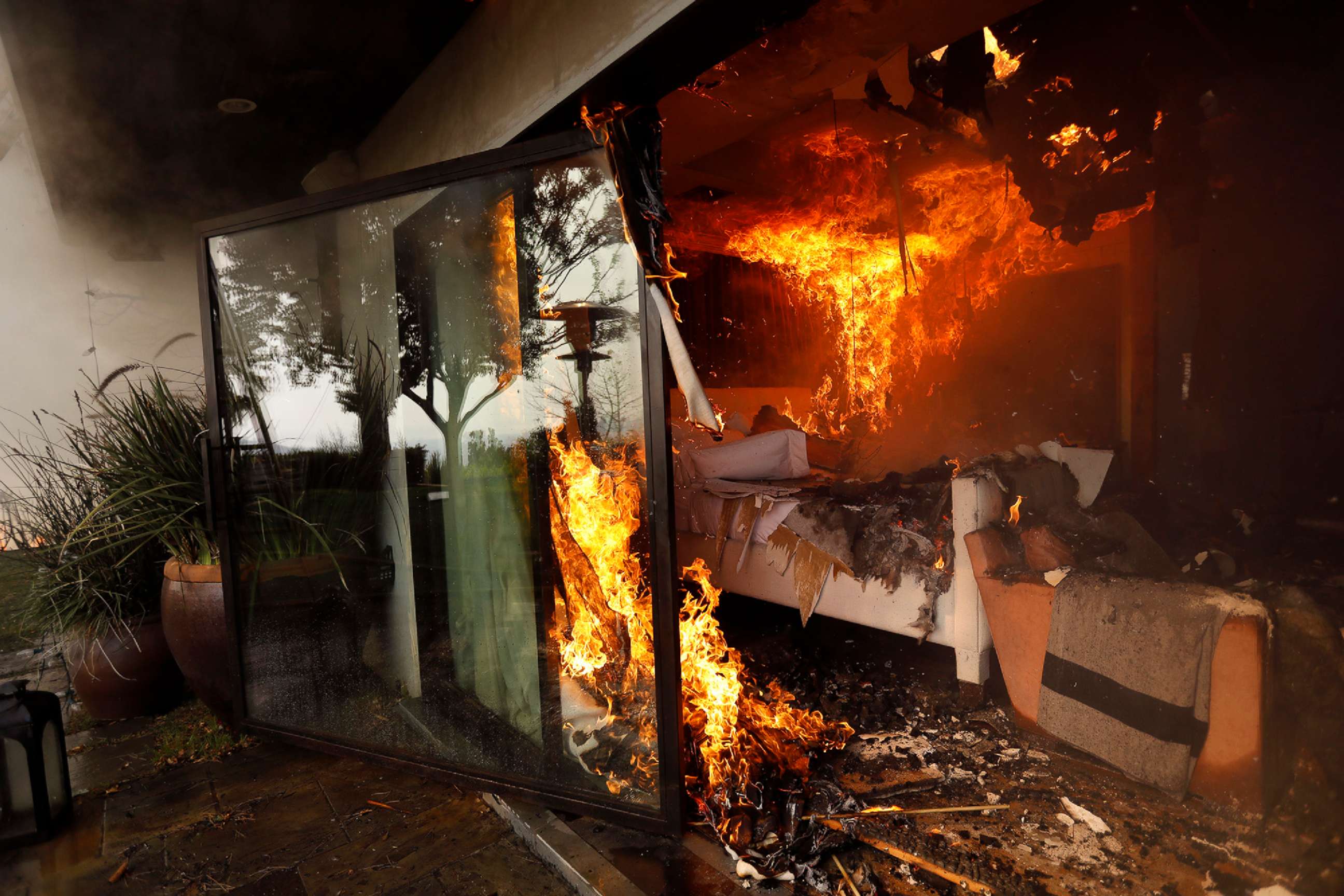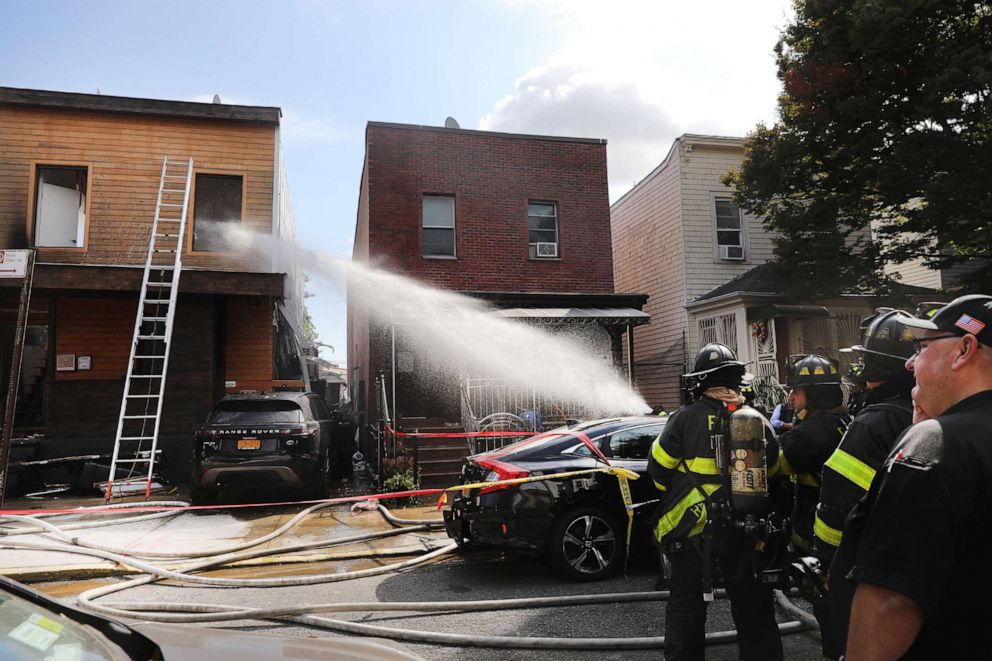Home fires spike over the holidays. What you can do to get out alive
November through January is a deadly time for house fires.
November through January is when house fires are at their worst. From cooking fires to faulty Christmas lights wiring, this is the time of year when fire departments around the country are inundated with calls.
According to the National Fire Protection Association (NFPA), in 2018 alone, an estimated 1,318,500 fires resulted in 3,655 civilian deaths, 15,200 injuries and an estimated $25.6 billion in direct property loss.
So what should you do if there’s a fire in your home? ABC News’ Matt Gutman teamed up with Underwriters Laboratories (UL) and members of the Philadelphia Fire Department to put together a controlled demonstration outlining how to get out alive.
Here’s what you need to know to stay safe:
1. Equip your home with smoke alarms
An early warning is so important because if you’re in another room you may not see or feel the flames, but smoke and carbon monoxide can find you. Smoke alarms give you the earliest warning to have the most time to get out or call for help if you are trapped.
According to the NFPA, three out of five fire deaths happen in homes without working smoke alarms.
Make sure you have smoke detectors in your home, test them often and keep the batteries fresh.
Homes should have working smoke alarms on every level of the house, including the attic, basement, and inside and outside all sleeping areas. Experts warn it’s not good enough to have just one smoke alarm.

2. Have an escape plan
In every room, you should know at least two different ways of getting out in case one of them is blocked by fire. These can be windows, side doors, back doors, windows, etc.
Have a plan, but also practice it -- schools have fire drills, families should, too.
3. Close before you doze
According to the U.S. Fire Administration, more than half of all home fires deaths occur between 11 p.m. and 7 a.m. while most people are sleeping. Many of these people wake up and find their home on fire.
Having the door closed will offer you protection by slowing the flow of fire, smoke and deadly gases into the room, offering more time for you to escape or for rescue teams to arrive.
If you wake up and hear a smoke alarm or sense fire, feel the door knob. If it’s hot, do not open it. Follow the “if you’re trapped” guidance below.
4. Don’t waste time -- get out!
UL told “Good Morning America” that 40 years ago -- when furniture was made of more natural materials -- you had an average of about 17 minutes to get out of your home after the smoke alarm sounded.
Now you have three minutes or less because so much of the furniture today is made from synthetic materials.
If a fire breaks out, don’t fight it. So often, we want to be a hero and put it out ourselves, but if it gets out of control, don’t waste time fighting; get you and your family out.
The same goes for running around trying to collect your valuables. Leave them. Every second counts and nothing is worth jeopardizing your life.
Call 911 after you’re outside.
5. Stay low
Smoke and deadly gases rise to the ceiling, so stay low, where the air will be less toxic, until you can get out of there.

WHAT TO DO IF YOU’RE TRAPPED AND/OR CAN’T GET OUT
Be in a closed-door room: If you absolutely can’t get out, the next best place to be is in a room with the door closed.
Feel the door knob: If it’s hot, do not open it.
Use the window: If you can safely escape through the window, do it, especially in cases where it is on the ground level, goes onto a flat roof or onto a fire escape.
Call 911: Tell the operator that you’re trapped and give your location so rescuers can get to you as soon as they arrive.
Alert rescue teams of your location: If you can’t get out through the window if you're on an upper level or the window is too small, drop a teddy bear, pillow or any object outside the window. Rescue teams will do a perimeter check of the house and if they see something below a window, it signals to them that somebody is up there. You can also hang a towel or sheet out the window.
Close the window: After alerting rescue teams of your location, if you can’t get out yourself through the window, close the window. Keeping the window open will actually suck more smoke and gas into the room. Only open the window again when rescue teams arrive or if you’re unable to breathe and you need to stick your head out to get air.




